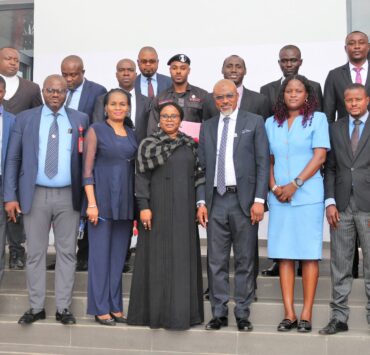Legal Enforceability and Jurisdictional Challenges of Smart Contracts in Nigeria by Grace Sunday-Ayegba

Lawyard is a legal media and services platform that provides…
Smart contracts are self-executing contracts with the terms directly written into code, typically deployed on blockchain platforms. These contracts automatically carry out transactions when certain conditions are met, without the need for middlemen.As technology continues to advance in Nigeria, these contracts are becoming exceedingly relevant, particularly in the tech and financial sectors. Due to this widespread application, it is essential to highlight and address the enforceability and jurisdictional challenges they present.
Legal Enforceability of Smart Contracts
Under the Nigerian law of contract, a contract would be recognized as legally enforceable, if certain criteria, including offer, acceptance, consideration, and intention to create legal relations are met.
The applicability of these traditional contract principles to smart contracts, however, is uncertain and thus a matter of ongoing debate. This uncertainty arises because Nigerian law does not yet explicitly recognize smart contracts as enforceable. However, ideally, smart contracts should be enforceable if these criteria are met.
The courts may simply rely on existing contract law principles when dealing with disputes involving smart contracts, depending on the circumstances. However, the lack of legal precedent makes their enforceability in Nigeria uncertain.
Jurisdictional Challenges
1. Cross-Border Transactions:
One of the significant challenges with smart contracts is determining jurisdiction and the applicable law, especially in cross-border transactions. Since smart contracts are often used across different countries, questions naturally arise about which legal system has the authority to resolve disputes. Additionally, courts may face difficulties in interpreting the codes that make up smart contracts, although this could be mitigated by involving expert witnesses, such as programmers.
In the same vein, parties might find it challenging to seek legal remedies or enforce court judgments when disputes arise, especially if the parties involved are spread across multiple jurisdictions. A practical way to address this issue is to include clear jurisdiction and applicable law clauses in the contract to avoid uncertainty.
2. Lack of Regulatory Framework:
The lack of an established legal framework in Nigeria concerning the use of smart contracts is another major challenge. As a result of this lacuna, businesses and individuals are left to rely on the general contract law and regulations governing electronic transactions.
This absence of clear guidelines creates uncertainty in the use of smart contracts, particularly in areas such as consumer protection, data privacy, and dispute resolution. For instance, consider a scenario where a consumer enters into a smart contract for an online service. If the service provider fails to deliver as promised, the consumer may struggle to find legal recourse due to the absence of specific laws addressing how disputes involving smart contracts should be handled.
3. Immutability of Smart Contracts:
Smart contracts are built to be immutable, meaning once they’re deployed on a blockchain, they cannot be easily changed. While this immutability offers security, it also presents challenges when legal disputes arise. This is because, unlike traditional contracts, which allow for amendments or renegotiations where circumstances change, smart contracts are rigid and do not easily accommodate unforeseen issues or new legal requirements that might arise after the contract has been finalized.
The flexibility typically available in traditional contracts is not present. Parties cannot simply go back and make changes to their agreement; they have to follow strict guidelines to make any alterations.
4. Regulatory Approaches:
Different countries have varying regulations on blockchain technology and smart contracts. Some may be more supportive, while others may have restrictive or unclear rules. Consequently, businesses operating internationally could face compliance challenges, as what is allowed in one country might be restricted or illegal in another. This inconsistency can lead to legal uncertainty and risks.
Conclusion
Smart contracts offer significant potential to drive innovation and efficiency especially as Nigeria’s tech and financial sectors continue to grow. However, their adoption is wrought with challenges. Issues around their legal enforceability and jurisdictional challenges are significant obstacles. While these contracts might be enforceable under current Nigerian contract law if they meet the necessary criteria, the absence of specific legal recognition by the law adds a layer of risk and uncertainty.
As such, it is important for lawmakers and legal experts to address these issues. Establishing clear rules and guidelines for smart contracts will be crucial for maximizing their benefits while ensuring that all parties are protected.
Lawyard is a legal media and services platform that provides enlightenment and access to legal services to members of the public (individuals and businesses) while also availing lawyers of needed information on new trends and resources in various areas of practice.













